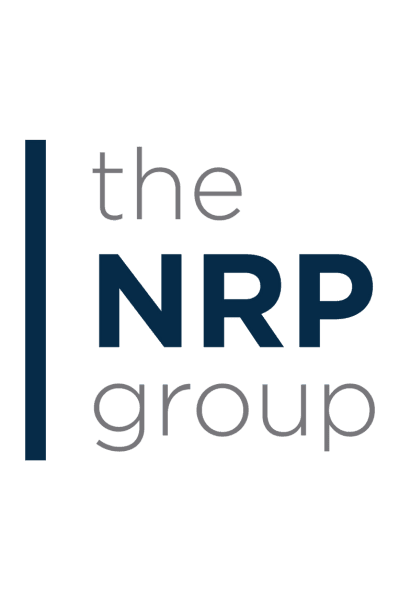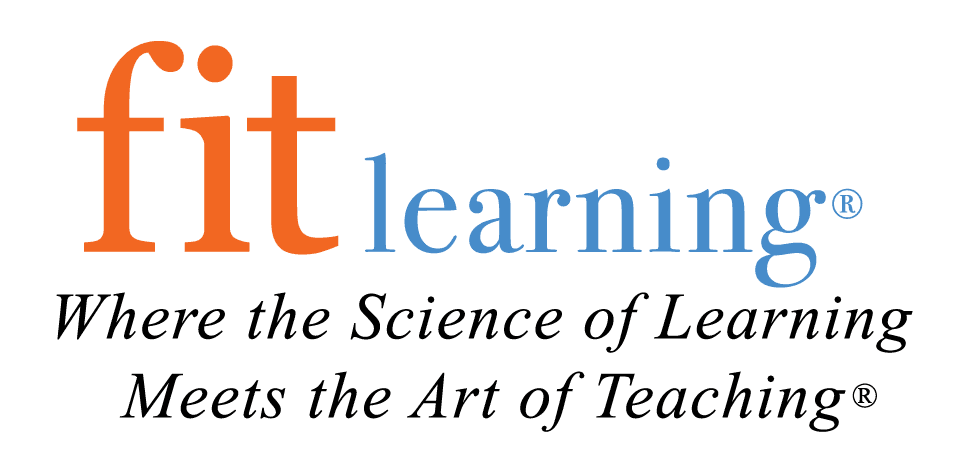A few will argue that Indiana Lawmakers passing a new bill to give thousands of adoptees, previously barred by Statute, equal rights under the law to their original birth certificates 'could' be problematic.
Why?
Well, the reasons vary from seemingly reasonable but flawed to outrageously absurd. It's no secret Hoosier Lawmakers have struggled with this in past sessions. But every reason to deny equal access under the law really boils down to this - a 'fear' of what 'could' happen. It's understandable.
Those same fears paralyzed Ohio lawmakers for decades, preventing them from doing the right thing as well. Fortunately, in 2013 Ohio lawmakers realized that the civil rights of adoptees should not be violated out of 'fear' of what 'could' happen. Lawmakers realized Ohioans deserved better. Why would Indiana citizens deserve anything less than Ohio adoptees?
Isn't the problem with fear-based decision making, that it is dangerously paralyzing? Isn't it true that if we stop advancing basic human rights because of what could go wrong, our civil rights would never evolve? Would women have ever won the right to vote? Would marriage equality exist? Would schools still be segregated?
As a 1969 Ohio adoptee, I was the very first person in line on March 20, 2015 when Ohio granted equal rights to Ohio adoptees.
I took off work, bought a sleeping bag and drove 130 miles to spend the night outside the door of the Ohio Bureau of Vital Statistics. I did this for the chance to apply to get equal access under the law to my birth records. Yes, it was that important to me. It was important for me to be in line at the time of my recorded birth, 5:20 a.m. as well. I had waited my whole life for this moment.
I am not a night person. But, I had never felt more awake than I did on the eve of my "truth day." The streets were quiet, just an occasional car passing by, but my mind raced thinking about all of the different emotions I had confronted at different times, while being denied equal access under the law to my birth records.
One of the earliest times I recalled was when I was in preschool and naturally curious. I remember looking different than my siblings and neighbor kids. My loving, adoptive parents shared my open curiosity, but had no answers either. I remembered the shame of this secret as early as four years of age. That is the impressionable age we are universally taught 'don't talk to strangers' and 'secrets are bad.' I remember not understanding why no one would tell me where I came from. If where I came from was a secret, did this mean I was bad too?
The consequences of that secret left an indelible mark on my developing self-confidence and self-esteem during those formative years. I have learned that my drive, ambition, insecurities, depression and anxieties are rooted in the secrets and lies surrounding my fictitious birth certificate. A birth certificate that was fabricated by the State of Ohio at the time of my adoption. A lie that I was sentenced to carry for life.
As I sat there in the still of the night, I thought back to 1976, when my grade school Administrators would pin notes for my parents to the back of my kindergarten sweater, wanting to know my race and ethnicity. Why was this important to my school? At 5 and 6, I just didn't understand.
It started to rain, and my memory took me back to 1986, where as a high school sophomore I was first allowed to date. There in the rain, a cute boy walked me to my bus with an umbrella and asked me out. I refused him flatly. Why? I used to secretly worry that the boys who took an interest in me, could unknowingly be related to me. So, I refused to date anyone who looked anything like me. Absent of the truth, why wouldn’t I be worried?
About 2:30 a.m., I recalled another 2:30 a.m. moment in 1990, when I stood outside the post office as a college junior, hand delivering a letter to the main postal hub, addressed to the state adoption placement agency seeking answers to fill in the blanks of my origin. The agency wrote me back and advised me that Ohio law barred disclosure. Why was finding out where I came from still illegal?
Around 3:30 a.m. my mind raced back to another middle of the night some years prior. It was 1997, and I was a graduate student. I awoke in serious respiratory distress and was rushed to the Emergency Room. It was scary. Over the next 12 months I saw many doctors. Sometimes, I couldn’t get out of bed. Every Specialist struggled to accurately diagnosis me. Medical professionals could not figure out the origin of my condition. I saw so many doctors, looking for answers. But every Doctor started their consult the same, asking "What's your family medical history?" I would respond 'I have none, I'm adopted.' Frustrated, some practitioners would press further, “It's important. Can’t you find out?”
With every painful and expensive medical test over that year, I remember becoming embittered. Was the truth being held hostage in a file drawer in Columbus? Would access to my birth records have given medical doctors better answers to make me well? What was the State protecting me from that was more important than my health? I can still remember vividly being wheeled into the Cleveland Clinic operating room. Everyone feared cancer. Minutes before I went under, I was asked, “Are you sure you don't have a family history of this?” I remember going under thinking, no, I'm not sure of anything.
I underwent 7.5 hours of surgery blindly. So did my surgeons. Why? I had no medical history and Ohio law still barred the release of the truth to me. I had 4 kiwi-sized masses in my chest cavity and a part of my lung removed. I was a non-smoker in otherwise reasonable health. Could my medical history have lent itself to a better understanding surrounding the sudden onset of a life threatening condition?
My loved ones sat in a waiting room for hours and hours helpless. I later learned they held their own guilt surrounding my adoption. Why? My Dad said he and my Mom failed to protect me by not finding out more about medical history at the adoption. But they were immobilized by 'fear' of what 'could' happen if they pushed the adoption agency for an unabridged medical and social history of me. They feared I could instead be placed with another family that was more willing to accept blindly the absurd secrecy. It got me thinking, what other major life changing decision is made blindly, in 'fear' of what 'could' happen with little to no information?
By the year 2000, I remember feeling like I was involuntarily in some state sponsored 'witness protection program.' Similarly, for decades, adoptees in Indiana have been thrust unwillingly into a “pseudo witness protection program”, with their origins kept secret, even from those who lovingly raised them as family. Like Ohio adoptees, Indiana adoptees have been forced to turn in those altered, falsified birth records, in order to enter school, get a driver’s license, marriage license, job or passport. Were they not unwillingly co-complicit in the State’s lies? Why would Indiana Lawmakers put their Indiana adoptees through this even one day longer?
At 5:00 am, a small handful of grown men joined me in line outside the Bureau. There was a nervous energy in the air. It was palpable. Fear loomed its ugly head and spared none of us. You could see it in the faces of every man standing there with me. Was this just too-good-to-be-true? We 'feared' that with a pen stroke, access to the truth 'could' be taken away at the 11th hour. In that moment I realized 'fear' really 'could' be as powerful as we allowed it to be.
Strangely, I found great comfort on the Bureau's stoop, amid total strangers engaging in nervous conversation that was eerily familiar. We were our own family bonded by the State’s horrible lie. A lie perpetuated by well-intended but misguided State lawmakers 50 years ago, who stripped us of equal access under the law. The tolls of those lies were being rung out in the hands of each of us standing there in the cold, shifting our weight side to side trying to keep warm and pass time. It was cold enough you could see our breath dissipate under the street lights as we spoke. I hoped fear was leaving with it.
By 5:30am, a handful of women had joined us. It was hard to believe we stood within 10 feet and mere hours from the truth, separated only by a glass door and locked file drawers. As each person shared snippets from their lives and the impact that decades of being denied equal access under the law had on them, I began to look at these grown men and women not as adults, but just as little kids in adult clothes, like Tom Hanks in the movie "Big." As time passed and the crowd swelled, it was like we were a sea of little kids in line at school awaiting the bell and ready to learn. It was so surreal.
Thankfully, the smelling salts came in the form of rain, cold and gusty winds, keeping us lucid enough to realize we were not really dreaming and this 50 year old nightmare was almost over. Fear gave way to hope as more people continued to join us. There was a definite power in numbers.
By 6:45 am, the line in the rain was long and winding around the building. I'll never forget the steady stream of Ohio citizens, from all walks of life, united by this one experience converging upon the Bureau of Vital Statistics. It was a parade of solidarity. A steady stream of umbrellas and smiling, hopeful faces about to make Ohio history. The media was there too. There was a ground swell of promise and the 'fear' of what 'could' happen was losing its clutch grip giving way to hope. We collectively realized that this was really happening today.
This bond that we shared -- having been stripped by the State Ohio of our rights to equal access under the law to our birth records -- made us a united family. Though seemingly exiled from our birth State, reunification came with our State courageously restoring us to full citizenship by granting us equal access to the truth -- an access already enjoyed by every other non-adopted Ohioan.
If we as adoptees could risk the 'fear' of what 'could' happen, why can't Indiana lawmakers? Adoptees and birth mothers are tough, resilient and very capable of handling truth, rejection and a myriad of other emotions. Adoption has a bunch of emotional entanglements. But what important, major life event doesn’t?
Indiana lawmakers need to learn from their neighboring state and the other 13 states who now fully realize no good comes from shame and secrecy. Being denied my birth records and the access to truth by the State of Ohio proved far more devastating than the actual truth.
Who in the 1980’s can’t at least vaguely remember the “Cabbage Patch Kids” craze? Retailers couldn’t keep stocked the dolls that were sold with “adoption” records that the purchaser immediately filled out, giving the “Cabbage Patch Kid” new roots. Notwithstanding the cabbage patch, these dolls had no unique origin. Aren't Indiana adoptees similarly situated?
The doors opened and it was a blur, but by 9am on March 20, 2015, I was already on my way home, having applied for my original birth certificate. On Good Friday, April 3, 2015, it arrived in a thin postmarked envelope. It only took 16,570 days to hold in my hand a copy of the truth – my original birth certificate.
I remember a flood of emotions overcame me, but mostly relief. I’m still surprised that the first few words out of my mouth were, “I’m no longer a Cabbage Patch Kid.” I had an origin and a start at the truth. The right to this information has made me feel fully like an Ohio citizen. I no longer felt on the outside of my birth state, in large part because my State no longer barred me from the truth of my birthright.
It took another 3 hours to find my birth mother. Within 3 days, we spoke for the first time in 45 years. Within 60 seconds of our first conversation, I was able to tell her "thank-you" for making a difficult choice to carry me, knowing she could not keep me. No one had ever thanked her for making that difficult choice. She shared with me her feelings of isolation, shame and pain of being treated like a criminal in the 1960's by those facilitating the adoption for having a child out of wedlock. She said she had no voice. I was dumbstruck. She was so young and had no support. How could no one appreciate her courage to carry me?
My biological Mother shared with me that giving up was a very painful process and after 5 hours of labor in the middle of the night, she fought to hold me at least once before I was taken away. We both cried. There were tears of joy and tears of understanding. It was healing and cathartic. I was surprised how much pain and shame she still carried after 45 years. I was relieved to be able start a dialogue towards her healing too. She was relieved to know I was well. I felt no shame nor pain towards her, just gratitude to be able to hear her eerily familiar voice. I was grateful for the opportunity to say aloud, that I was okay -- the same sentiment I used to say in the direction of the stars, in a quiet moment each November 20th, for as long as I can remember. It was touching to learn she too did the same thing for 45 years on our birthday. We've begun a very slow, heartfelt dialogue of healing and understanding. I am better for it. She is too. I don't know what the future will hold, but I know for sure having the right to access my original birth records was essential to restoring us both whole and giving me access to critical health information.
I still struggle with health problems. But, I have a social and medical history that gives me answers that I can share with my medical doctors. Armed with that information, they are much better positioned to help me in a meaningful way. I never would have had this advantage, but not for the courage of Ohio lawmakers to do the right thing.
What good comes from secrecy and shame? It's a rhetorical question. The answer is nothing. Adoption need not be shrouded in either secrecy or shame. What can Indiana Lawmakers glean from Ohio's learning curve on adoption? It's never too late to do the right thing.
Indiana adoptees need a hero. Applications are being readily accepted right now in the House of Representatives, where Senate Bill 91 awaits reconsideration. The question remains, which House of Representative Lawmakers will boldly lead the charge to further the Indiana Senate's efforts to do the right thing by Indiana adoptees?
For the sake of all Indiana adoptees, I hope the House of Representatives and the Governor will soon join their fellow lawmakers in the Senate in championing the rights of adopted kids to ensure that no one has to undergo the medical problems I have without answers nor suffer the shame that by design, state-sanctioned secret birth records creates.
Why do Indiana adoptees deserve anything less than equal access to their birth records? Haven't 14 other states, including your neighbor Ohio, in allowing equal access to adoption records already demonstrated proof of concept? Isn't it time for the wait to be over?
















